 Do you prefer to travel alone or with someone else? Depending on your preference—and maybe your experience, too—your response to this situation presented to the 2017 panel could be as mild or as dramatic as some of the responses they had.
Do you prefer to travel alone or with someone else? Depending on your preference—and maybe your experience, too—your response to this situation presented to the 2017 panel could be as mild or as dramatic as some of the responses they had.
Several months ago, you spent what is a lot of money for you on tickets and hotel reservations for a trip you’ve planned with a friend. You’re really looking forward to it, but two weeks before your scheduled departure, your friend tells you he/she won’t be able to go. How would you feel? What would you think? And what would you do and say?
Type 1: I would feel disappointed. I would do my best to be understanding without being too angry or disrupted by the change in plans. I would let the friend know it’s OK, even though I might not feel that way. And I would go enjoy myself on the trip finding pleasure in just being by myself. And I’d be perfectly happy to go do something by myself.
Type 2: At the end of last year, I got a call from a friend asking me to join her at a conference in Phoenix. I really wasn’t planning on going, but I signed up and paid a lot of money just to support her. A month before, she called and said I can’t go. And my first thought was, so? I don’t sweat that kind of stuff. It’s not important to me. I am really good at accepting change. And I don’t get annoyed with changes like that. I mean if you can’t go, you can’t go. So I went and I had a great time. What I thought was Too bad that she can’t go, but I plan to enjoy it anyway.
Type 3: I’d be really angry, and I would be disappointed because we were planning something together. And if she didn’t tell me why she didn’t go, I wouldn’t ask. I’d be like What? OK. You’ve told me where you stand on this. I’d be furious. I would probably never travel with her again. But I would go ahead and go on the trip, in spite, to show I’m not a quitter. It would be coming from a sense of being angry because she’s let me down. And I don’t let people down. So other people aren’t allowed to do that to me.
Type 4: I paid money. I paid for her trip. She owes me. I would be mad. If she does not have a really good excuse like her mother or father or child are dying or she’s going have to lose a limb for some reason, it’s almost unforgiveable. She will have to pay me back. I would then stop and probably go on the trip myself, look for someone to go with and—just like you—truly seriously evaluate whether this is a friendship I need in my life. My money; not cool.
Type 5: I guess I’d be irritated. This is probably why I don’t plan trips with other people. I’d be irritated especially if they didn’t have a good reason why they were cancelling, though I’d be thankful they gave me two weeks’ notice. That’s better than cancelling at the last minute. It would give me a chance to get a refund or maybe find someone else to go with me because I somehow decided I want someone to go with me. Regardless, I’d be happy to go on my own or just not go, depending on whether I really wanted to go or not.
Type 6: I wouldn’t be really surprised. 6s always expect things to go wrong. I would just say, See ya’ around; I hope what it is is good enough to cancel this friendship. I remember when I was a real small child, my mother told me “cheer up; things could be worse,” so I cheered up and sure enough things got worse. I would try to get a refund but never expect things would have gone off as planned, anyway.
Type 7: I would be incredibly disappointed, and I would feel a little disrespected. I’d be in disbelief. But then I would be sympathetic if, in my judgment, it warranted sympathy. Unlike (the type 3), I would want to know why you would do this to me. I would immediately start looking for a substitute person. I would probably badger absolutely everyone I knew because nobody wants to travel alone. But if I did have to travel alone, I would take the attitude that it would be a great adventure and this is what is meant to be and I would enjoy every moment of it.
Type 8: Irritation. But of course I would care about why they were cancelling. That would impact my attitude. But ultimately…so what do I feel? Irritation. What do I think? Why are you cancelling? I would want to know that. What do you say and do? I’d probably say, OK, you paid; fine. I’m going to get somebody else to go, and they can pay me, and I can pay for my trip. But I would either go by myself or find a substitute. I would just have fun. I would go.
Type 9: I would be really hurt and disappointed, mostly because I do travel by myself. So if I was in this scenario, it would be someone that mattered to me and I was looking forward to spending time with them. But, you know, life happens, so I would still go, and I would still have an awesome time.

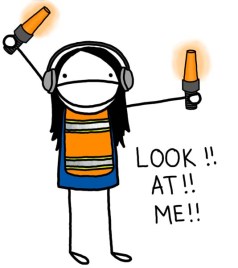
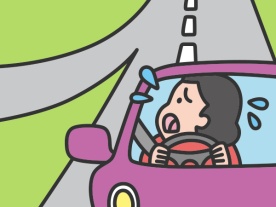

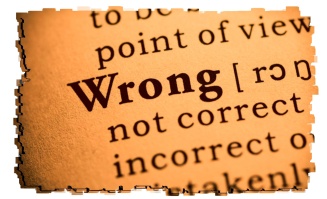 Here is another hypothetical situation presented to the 2016 Enneagram panel. This one made everyone—or at least everyone who acknowledged that the situation could happen to them—feel uncomfortable. That wasn’t the case with some of the other situations.
Here is another hypothetical situation presented to the 2016 Enneagram panel. This one made everyone—or at least everyone who acknowledged that the situation could happen to them—feel uncomfortable. That wasn’t the case with some of the other situations.
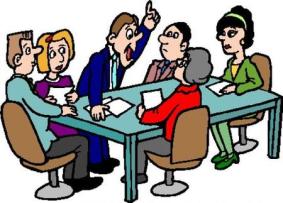
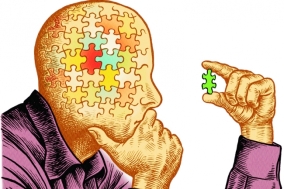
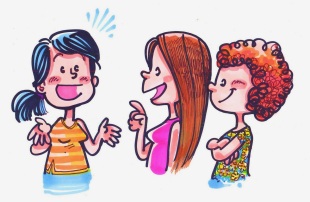
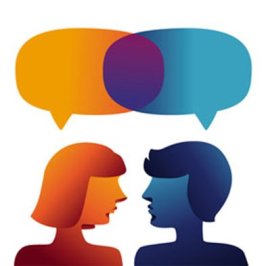 It’s easy to be annoyed or hurt or frustrated by the way other people interact with us. But if we can identify what kind of responses we prefer—and communicate that information (rather than accuse or make demands) to significant others—we’ll have a much better chance of getting what we want. And of getting along with each other.
It’s easy to be annoyed or hurt or frustrated by the way other people interact with us. But if we can identify what kind of responses we prefer—and communicate that information (rather than accuse or make demands) to significant others—we’ll have a much better chance of getting what we want. And of getting along with each other.
